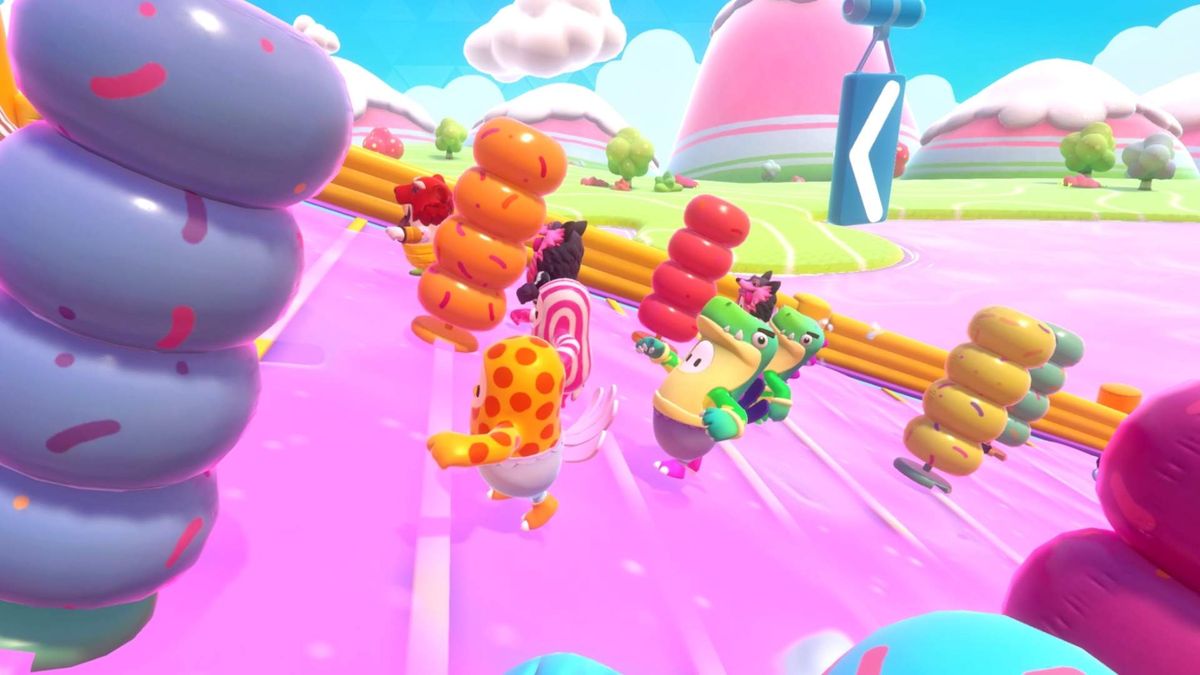Game On: ‘Fall Guys’ and the special power of replay value

“Fall Guys: Ultimate Knockout” was released on Aug. 4 to much greater success than developer Mediatonic anticipated. In a market already saturated by online, multiplayer, “battle royale”-style games where only the last surviving player wins, “Fall Guys” turns the genre on its head. The 60 players in each match don’t hide and kill one another in militarized survival conditions, but instead compete in frantic obstacle course challenges featuring unwieldy bean-shaped characters. The cheerful but hectic game takes obvious inspiration from game shows like “Wipeout” and “It’s a Knockout.”
Just how big of a hit is “Fall Guys?” During its first week, it enjoyed higher viewership on Twitch than the likes of “Fortnite,” “Call of Duty: Modern Warfare” and “Valorant.” The day after its release, “Fall Guys” was streamed by more than 3,000 channels to audiences totaling more than 250,000 viewers, according to Twitch Tracker. Within 24 hours of release, the game drew more than 1.5 million players. On Monday, publisher Devolver Digital announced the game had sold 2 million copies on Steam.
While I haven’t had the opportunity to play “Fall Guys,” it brings a smile to my face for many reasons. I’ve sunk thousands of hours into various first-person shooters, but that ever-popular genre is slowly but surely being done to death – by contrast, it’s nice to see a colorful game based on platforming and acrobatic moves succeed commercially. From a competitive standpoint, however, it’s just as savage as your average military shooter. More importantly, the success of “Fall Guys” proves that consumers will still buy a game no matter how much they can watch other people play it.
Unlike the film industry, where opportunities for consumers to view a movie at no cost is often detrimental to a product’s bottom line, video games are a different beast. This is owed to a factor called “replay value,” sometimes called “replayability.” Quite simply, it refers to how long a gamer can play the same game without getting bored. While you might be able to watch your favorite movie quite a few times before getting burnt out on it, everything stays the same with each viewing – it’s the same film.
That’s not the case with the vast majority of video games. Depending on the title, there might be different paths to take, moral choices to make and, in multiplayer games, interactions between players. It’s a strength unique to the medium, and with gaming rising in popularity and some studios hiring hundreds of employees, game worlds are becoming increasingly complex. For example, “Baldur’s Gate III” is set to release this year with some 100 hours of content – depending on how players interact with the game, they’ll experience different portions of that 100 hours, encouraging them to play through multiple times.
Achieving that level of replay value takes a herculean effort for a story-driven game. It’s much easier for developers to release a multiplayer game where gamers are bound to have a unique experience each time because of their interactions with teammates and opponents. In this sense, multiplayer games are more similar to playing a sports game than watching a film – it’s competitive and/or cooperative, and it’s a different experience every time.
That’s the case with “Fall Guys,” and while I don’t foresee the game remaining hugely popular for years to come a la “Minecraft” or the “Call of Duty” series, it’s a breath of fresh air to see an original game from an obscure studio make it big. Mediatonic has already begun rolling out updates to combat cheating and improve its online servers to ensure “Fall Guys” players enjoy a smoother gameplay experience, and they’ve promised to keep adding mini games to the game’s lineup.
“Fall Guys: Ultimate Knockout” is available now for PlayStation 4 and on Windows PC via Steam for $20. Additionally, the game is free for PlayStation Plus subscribers through August.